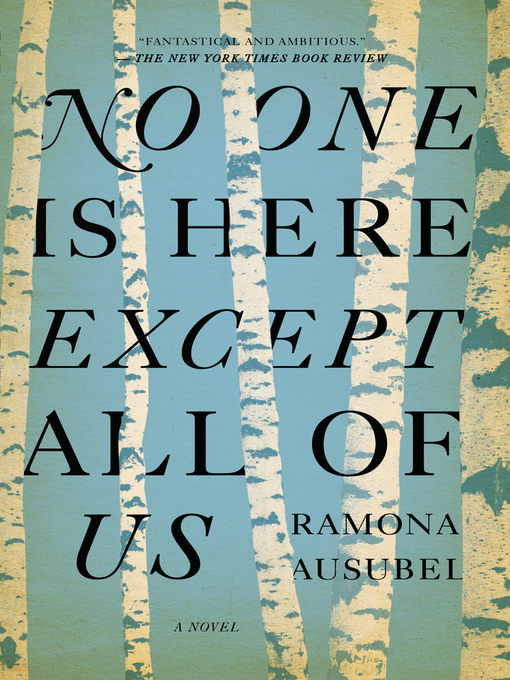
In 1939, the families in a remote Jewish village in Romania feel the war close in on them. Their tribe has moved and escaped for thousands of years- across oceans, deserts, and mountains-but now, it seems, there is nowhere else to go. Danger is imminent in every direction, yet the territory of imagination and belief is limitless. At the suggestion of an eleven-year-old girl and a mysterious stranger who has washed up on the riverbank, the villagers decide to reinvent the world: deny any relationship with the known and start over from scratch. Destiny is unwritten. Time and history are forgotten. Jobs, husbands, a child, are reassigned. And for years, there is boundless hope. But the real world continues to unfold alongside the imagined one, eventually overtaking it, and soon our narrator-the girl, grown into a young mother-must flee her village, move from one world to the next, to find her husband and save her children, and propel them toward a real and hopeful future. A beguiling, imaginative, inspiring story about the bigness of being alive as an individual, as a member of a tribe, and as a participant in history, No One Is Here Except All Of Us explores how we use storytelling to survive and shape our own truths. It marks the arrival of a major new literary talent.
-
Creators
-
Publisher
-
Release date
February 2, 2012 -
Formats
-
Kindle Book
-
OverDrive Read
- ISBN: 9781101559826
-
EPUB ebook
- ISBN: 9781101559826
- File size: 487 KB
-
-
Accessibility
-
Languages
- English
-
Reviews

Loading
Formats
- Kindle Book
- OverDrive Read
- EPUB ebook
subjects
Languages
- English
Why is availability limited?
×Availability can change throughout the month based on the library's budget. You can still place a hold on the title, and your hold will be automatically filled as soon as the title is available again.
The Kindle Book format for this title is not supported on:
×Read-along ebook
×The OverDrive Read format of this ebook has professional narration that plays while you read in your browser. Learn more here.